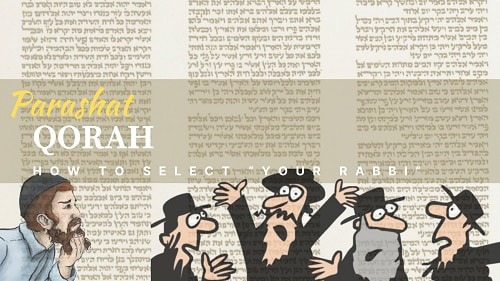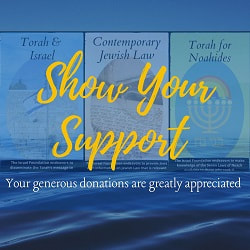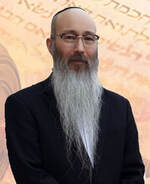|
By: HaRav Menashe Sasson Reporting from Jerusalem, Israel Published in the U.S.A. In last week’s Parashah, we discussed, among other things, the twelve spies [מרגלים], whom the Torah refers to as “great men” [אנשים]. These great men [אנשים] had studied Torah at the foot of Moshe Rabbeinu and were Rabbis, leaders of their respective tribes. After having reconnoitered Eretz Yisra’el in preparation for the military invasion that was to follow, ten of these great Rabbis issued a joint psak Halakha [פסק הלכה] (ruling on Jewish law) which held that because a military invasion of Eretz Yisra’el would likely result in the loss of life, the doctrine of pikuah nefesh [פקוח נפש], a doctrine that permits (and, in some situations requires,) one to violate a Torah commandment (misva [מצוה]) in order to save life, allowed the Jewish people to decline to perform the misva [מצוה] of Yishuv Eretz Yisra’el [ישוב ארץ ישראל] (the Torah commandment to settle the Land of Eretz Yisra’el). This psak Halakha [פסק הלכה] of the spies, the anashim [אנשים] who reconnoitered Eretz Yisra’el, was erroneous for at least two reasons. First, prosecuting a war to Yishuv Eretz Yisra’el [ישוב ארץ ישראל] is a milchemet misva [מלחמת מצווה], a war mandated by the Torah. The doctrine of pikuah nefesh [פקוח נפש], which allows a person to violate a Torah commandment in order to save life, cannot be applied in a manner which would have the effect of completely excusing compliance with a Torah commandment, such as the obligation to make war, which, by its very nature, involves danger to human life. Second, there are three situations in which the doctrine of pikuah nefesh [פקוח נפש] may not be applied to permit violation of a Torah commandment. One of those situations is idolatry. The Talmud states:
T.B. Masechet Ketuvot, 110b, quoting Vayyiqra 25:38. Because the purpose of the Exodus was to give the Jewish people Eretz Yisra’el and because “anyone who resides outside of Eretz Yisra’el is considered as one who does not have a G-d,” it follows that a refusal to Yishuv Eretz Yisra’el [ישוב ארץ ישראל] by who one has the opportunity to do so, is a rejection of the Torah, a rejection of G-d himself, and, thus, constitutes a form of idolatry. Therefore, because idolatry is one of the sins that a person may not commit to save a life, if follows that the doctrine of pikuah nefesh [פקוח נפש] may not be applied to excuse a failure to Yishuv Eretz Yisra’el [ישוב ארץ ישראל]. Thus, we see that the psak Halackha [פסק הלכה] of the spies, the anashim [אנשים] who reconnoitered Eretz Yisra’el, was erroneous. In Parashat Qorah, we find three additional Halakhic disputes: First, Qorah, a very accomplished and learned man, alleged that he, not Aharon, should have been appointed Kohen Gadol. Qorah reasoned that because leadership of the nation had gone to Moshe, as the son of Levi’s firstborn, Amram, he, Qorah, as the son of Levi’s second-born, Yitzhar, should have been appointed Kohen Gadol. Second, the first-born of all the tribes collectively challenged the tribe of Levi, alleging that they, not the Levites, should have the privilege of serving in the Mishkan. Third, the tribe of Reuven, as represented by Datan, Aviram, and On, claimed that the privilege of royalty should be belong to them, as offspring of Ya’akov’s firstborn, and not to the tribe of Yehudah. As with the spies, the claims of Qorah, the first-born, and the tribe of Reuven, all lacked merit. Because prophecy existed during the time of Moshe, the spies, Qorah, and the tribes, it is not too difficult for us to determine what HaShem wanted from the Jewish people. Today, things are different. There are still many factions within the Jewish people and many disagree with others on matters of Halakha. The question, then, is: What criteria should a person use when selecting a Rabbi who will rule on Halakhic issues? There can, of course, be no “one size fits all” answer to this question. However, a few guidelines might be helpful.
Common-sense. Don’t “check your common-sense” at the door of the Beit Midrash. In other words, don’t accept anything that doesn’t make sense. It’s true that a particular pasuk, Halakha, or piece of Gemara may not make sense when first studied. When this occurs, study more; ask your rabbi to teach you. When you choose someone to be “your rabbi,” make sure this person can – and will – take the time, not only to help you learn, but also to help you understand, Torah. שבת שלום Shabbat Shalom! Copyright © The Israel Foundation. All Rights Reserved.
0 Comments
Your comment will be posted after it is approved.
Leave a Reply. |
THE ISRAEL FOUNDATION





